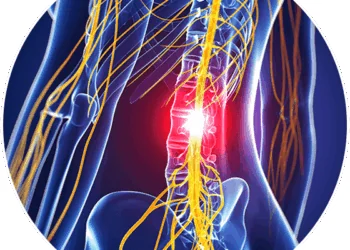After a nervous breakdown, life can feel like a rollercoaster ride—minus the fun and excitement. It’s that awkward moment when your brain hits the “pause” button, and suddenly, everything seems overwhelming. But what happens next? Spoiler alert: it’s not just about binge-watching cat videos and eating ice cream in bed.
What Happens After a Nervous Breakdown
Nervous breakdowns involve intense emotional distress and can disrupt daily life. Recognizing the intricacies of this experience is essential for understanding recovery.
Definition and Causes
A nervous breakdown refers to a mental health crisis characterized by extreme stress or anxiety that impairs daily functioning. Various factors contribute to this condition, including chronic stress, unresolved trauma, and significant life changes. High-pressure environments, personal loss, or underlying mental health disorders often play key roles in triggering a breakdown. When cumulative stress exceeds an individual’s coping ability, it can lead to this overwhelming state.
Warning Signs and Symptoms
Identifying the warning signs and symptoms of a nervous breakdown is crucial. Individuals may experience overwhelming feelings of anxiety, irritability, or sadness. Physical symptoms often manifest, such as fatigue, sleep disturbances, or changes in appetite. Difficulty concentrating or lack of motivation might also occur. Social withdrawal is a common behavior, as those affected may isolate themselves from friends and family. Recognizing these early indicators can facilitate timely intervention and support.
What to do After A Nervous Breakdown

Experiencing a nervous breakdown leads to a complex array of emotional and physical responses. Understanding these reactions helps clarify the recovery journey.
Emotional Reactions
Anger or frustration often occurs during this period. Many individuals feel overwhelmed by feelings of sadness or hopelessness. Anxiety levels might spike, creating a sense of impending doom. Isolation becomes common as social interactions seem daunting. Confusion frequently clouds judgment, making decision-making difficult. Each emotion can fluctuate in intensity, contributing to an unpredictable emotional landscape.
Physical Effects
Fatigue rapidly sets in as energy reserves are depleted. Sleep disturbances, including insomnia or excessive sleeping, often ensue. Aches and pains may manifest without a clear cause, pointing to heightened tension in the body. Digestive issues like nausea or loss of appetite frequently arise. Headaches can become more prevalent, serving as a physical reminder of underlying stress. Each symptom reflects the toll a nervous breakdown takes on overall health.
Life After A Nervous Breakdown
Recovery from a nervous breakdown involves a comprehensive approach tailored to individual needs. The journey can be challenging, yet several strategies facilitate healing.
Seeking Professional Help
Consulting with mental health professionals marks a crucial first step. Psychiatrists and therapists offer targeted treatment plans, which may include therapy or medication. Cognitive Behavioral Therapy (CBT) often addresses underlying thought patterns contributing to stress and anxiety. Regular appointments help monitor progress and adjust strategies when necessary. Support from professionals equips individuals with practical tools to manage symptoms effectively.
Importance of Support Systems
Support systems play a significant role in recovery. Friends and family provide emotional stability, which bolsters resilience during challenging times. Trusted loved ones often offer listening ears, encouragement, and practical assistance. Engaging in group therapies or support groups creates connections with others facing similar struggles, fostering a sense of community. Open discussions with supportive peers can alleviate feelings of isolation and enhance overall well-being, making recovery more manageable.
After A Nervous Breakdown
After experiencing a nervous breakdown, individuals often face lasting implications on their mental and physical health. Awareness of these effects can guide recovery strategies.
Mental Health Considerations
Anxiety and depression may linger long after a breakdown, complicating emotional stability. Individuals might struggle with self-esteem, as feelings of inadequacy can arise from the experience. Consistent therapy offers vital support, allowing space to process emotions and learn coping mechanisms. Medication may assist in managing ongoing symptoms, particularly when prescribed by mental health professionals. Regular check-ins with clinicians help track progress and adapt treatment plans. Additionally, mindfulness practices foster relaxation and resilience, promoting a stronger mental state over time.
Lifestyle Changes
Adjustments to daily habits often prove essential for long-term recovery. Prioritizing sleep quality can significantly enhance overall well-being, as fatigue frequently persists after a breakdown. Nutrition holds importance as a balanced diet supports physical and mental health. Regular exercise boosts mood and reduces stress, making it a valuable part of regimens. Connecting with supportive communities brings emotional comfort, reducing feelings of isolation. Establishing structured routines creates stability and predictability, both crucial for regaining control. Seeking hobbies that inspire joy encourages engagement and fosters a positive outlook.
Conclusion
Recovery after a nervous breakdown is a gradual and often challenging journey. Individuals may face a range of emotional and physical responses that require careful attention and support. Emphasizing the importance of professional help and strong support systems can significantly enhance the recovery experience.
Incorporating healthy lifestyle changes and engaging in meaningful activities can pave the way for long-term well-being. As individuals navigate this process, patience and self-compassion become essential. With the right strategies and support, it’s possible to emerge from this difficult period with renewed strength and resilience.












